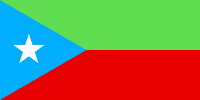
Photo from wikipedia
ABSTRACT Security governance practices are contingent on the imagination of future threats. The “war on terror” has produced a very narrow imagination of threats, almost singularly focused on suspect communities… Click to show full abstract
ABSTRACT Security governance practices are contingent on the imagination of future threats. The “war on terror” has produced a very narrow imagination of threats, almost singularly focused on suspect communities that are Arab, Muslim, or perceived to be Middle Eastern. Discussing how immigration practices in Canada have been influenced by counter-terrorism trends, we argue that “terror identities” are mutable and highly racialised imaginaries that cast indelible marks of suspicion on subjects who are deemed as security threats. Examining the case of a journalist deemed inadmissible to Canada because of her “membership” in the Palestinian Liberation Organisation (PLO), we argue that terror identities impose authoritative control over the status and lived experiences of individuals who are cast through these racialised labelling practices. Focussing on the shifting characterisation of the PLO by Canadian officials as both political interlocutor and terrorist organisation, our purpose is to highlight how racialised imaginations of terror identities enact punitive and discriminatory practices.
Journal Title: Critical Studies on Terrorism
Year Published: 2020
Link to full text (if available)
Share on Social Media: Sign Up to like & get
recommendations!